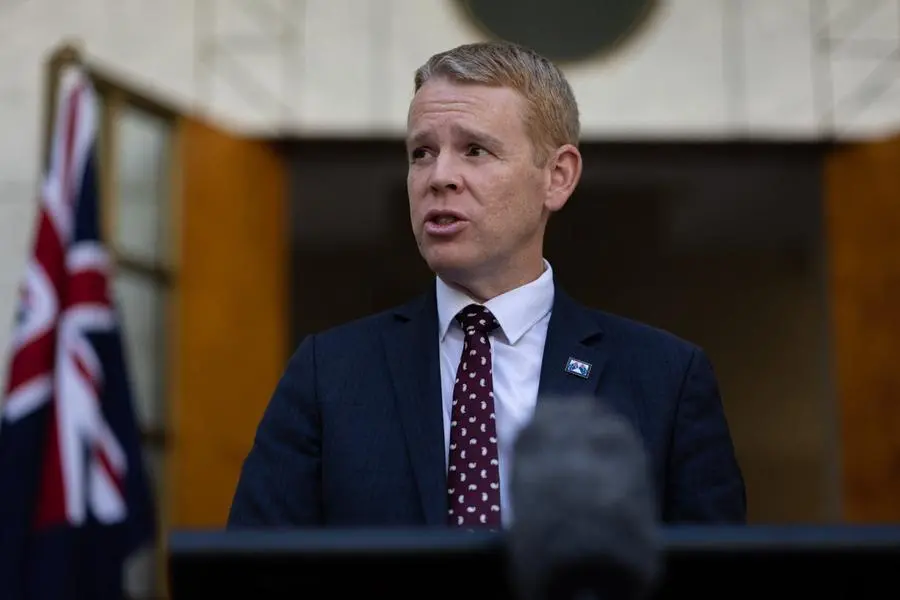PHOTO
Recently installed New Zealand Prime Minister Chris Hipkins unveiled a higher minimum wage Wednesday, as he seeks to court voters ahead of a tight October general election.
With New Zealand in the grip of a cost of living crisis, Hipkins said the minimum wage would rise by 95 cents to $14.22 an hour from April 1.
It is the first major policy announcement from Hipkins, who was sworn in as prime minister last month following Jacinda Ardern's shock resignation.
"Those on low incomes make impossible trade-offs between food and medical care, dry homes and a pair of shoes," Hipkins said. "These families need our support now more than ever.
Hipkins is currently polling almost neck-and-neck with conservative opposition leader Christopher Luxon.
Trying to burnish his own political brand after years in Ardern's shadow, Hipkins said her government had tried to do "too much too fast".
Hipkins said he wanted to put "the cost of living front and centre" before New Zealand goes to the polls on October 14.
The new prime minister also plans to abandon or amend some proposed reforms which had proven controversial.
Work on a merger of national broadcasters TVNZ and Radio New Zealand "will stop entirely".
"Support for public media needs to be at a lower cost and without such significant structural change," Hipkins added.
A planned social insurance scheme, to help workers who have been made redundant, is also "off the table".
"We will need to see a significant improvement in economic conditions before anything is advanced," Hipkins said.





















